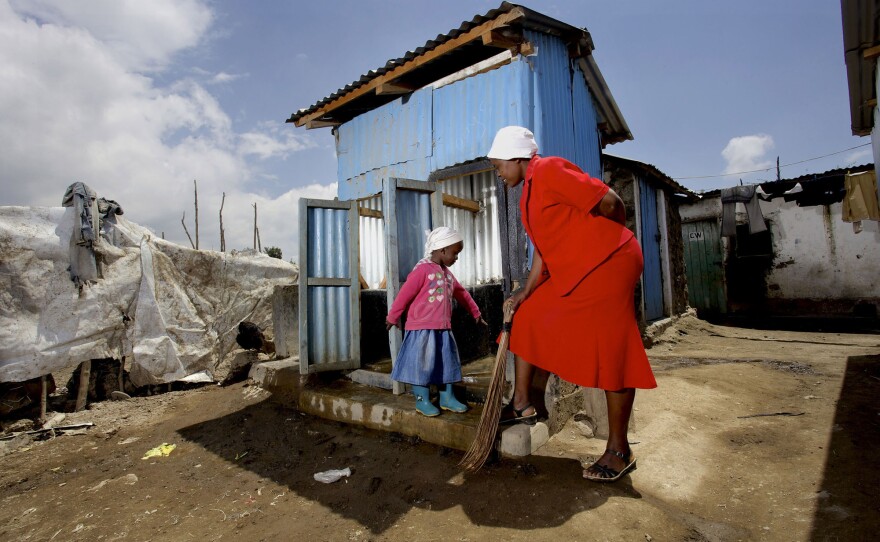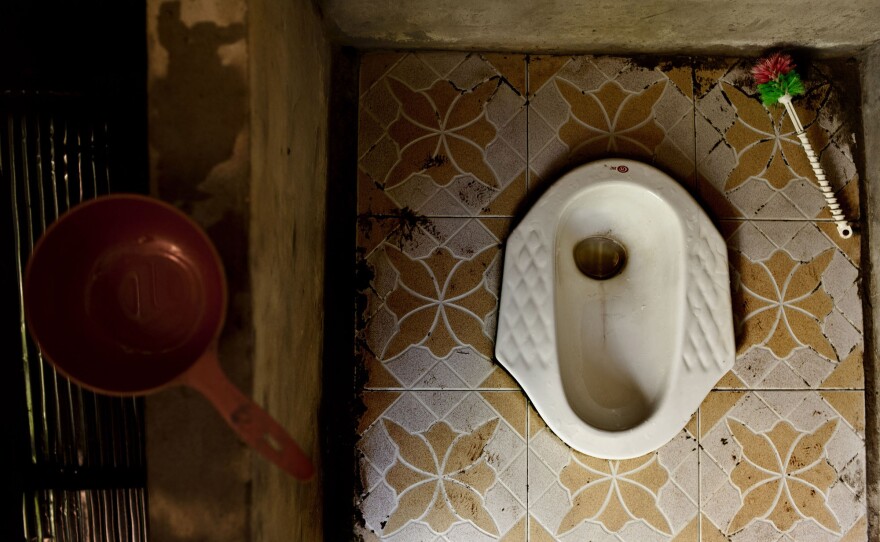
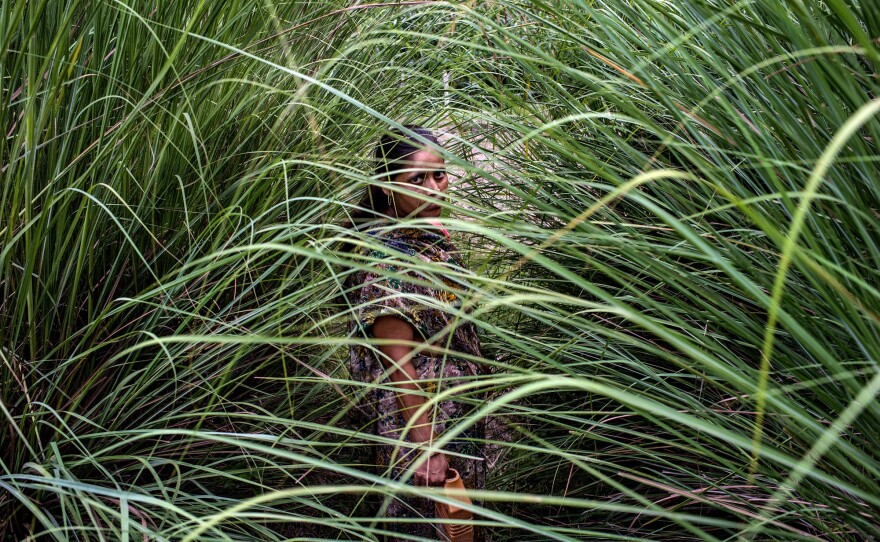
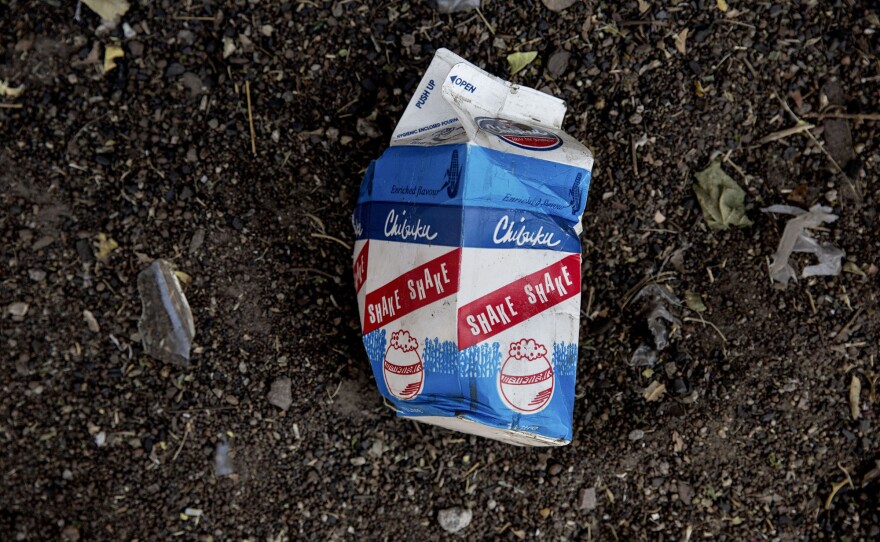
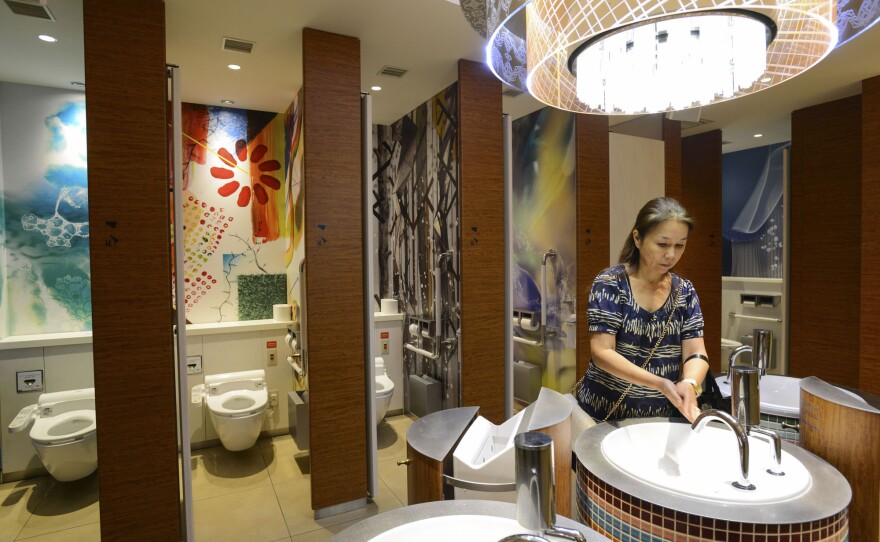
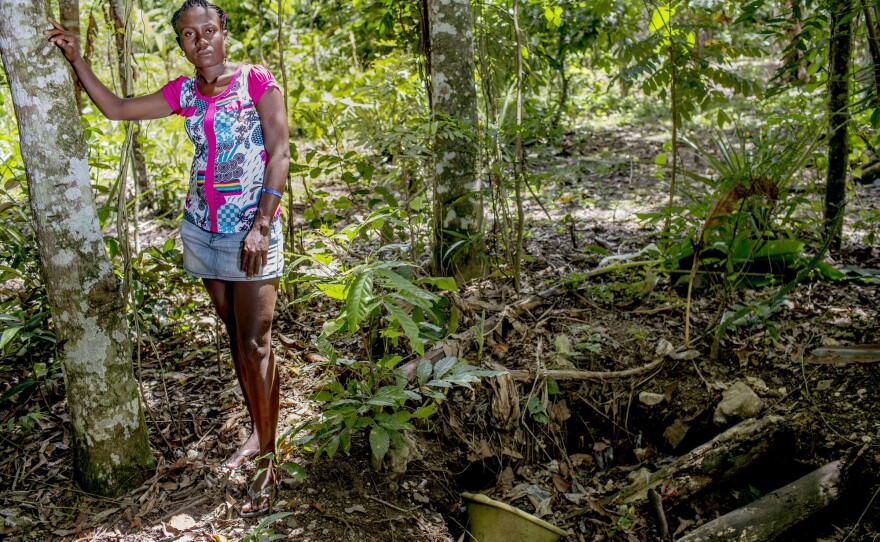
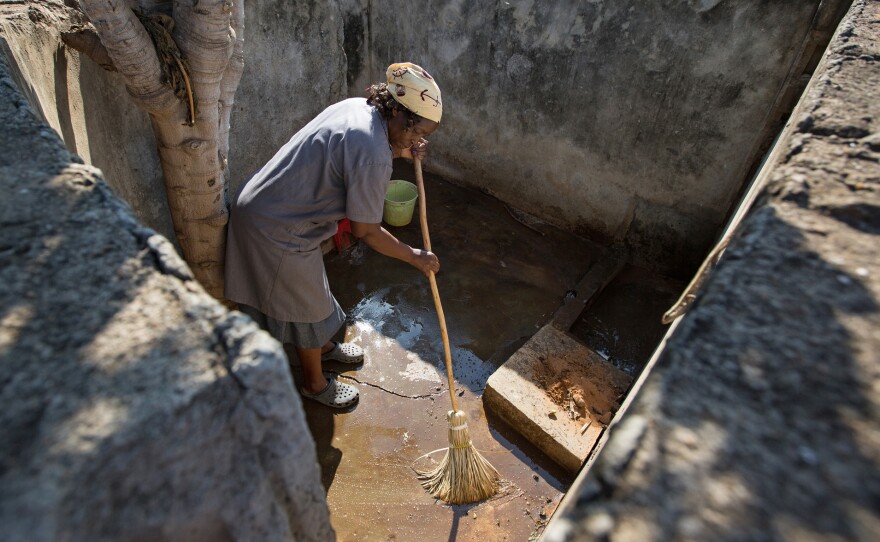
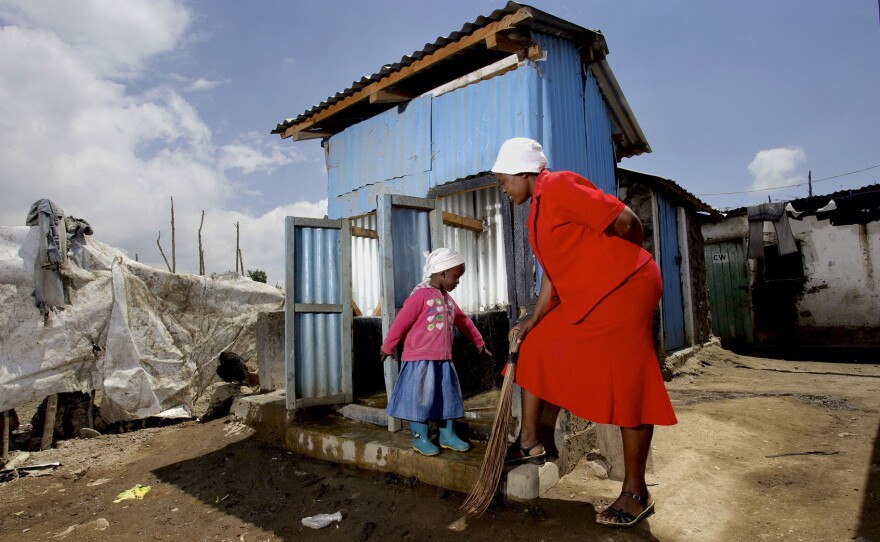
What does it mean to have a toilet?
We in the West don't spend much time pondering that question (on or off the toilet).
"It's something that's always in the background that keeps everything else moving," says Sam Drabble of Water and Sanitation for the Urban Poor (WSUP), a London-based nonprofit. "It allows us to live very busy lives, and it's not something we ever need to think about."
Others aren't so fortunate. Geeta has no toilet near her home in northern India; she treks 2 miles in the dark to a field for privacy. If Vanessa's school had private bathrooms, the 17-year-old wouldn't have to miss class when she's having her period. In Ecuador, Reverside, 37, wouldn't have to visit her brother's house to use his toilet, which is shared by nine other people from different families.
These are some of the stories told (and shown) in a new exhibit called My Toilet: Global Stories from Women and Girls, put together by WSUP and the Panos Pictures photo agency to mark World Toilet Day. The six-day-long exhibit, which opened Monday at the Royal Opera Arcade Gallery in London, features images from 20 countries — Brazil to Kenya to the U.S. Each subject poses next to what she uses as a toilet and tells her story of why a latrine matters.
Among the 2.5 billion people without access to a clean and proper toilet — more than a billion of whom defecate out in the open — "women and girls are hit hardest," Drabble says. That's often the case in lower-income countries throughout South and Southeast Asia as well as sub-Saharan Africa.
Indeed, the theme of World Toilet Day this year is how women suffer when they lack a proper toilet. Without running water or plumbing, many resort to unsafe and squalid alternatives. A toilet may simply be a hole in the ground or a space in an open field. In some parts of South Asia, "hanging toilets" — bamboo huts with a hole cut out in the floor, suspended 3 feet above a pond — are common.
The consequences of such precarious solutions go beyond health, Drabble says: "Also [at risk are] education, employment opportunities, personal dignities, your privacy and your security."
Geeta comes from the Indian village where two teenage girls were gang-raped and murdered over the summer while relieving themselves in a field. In Africa, 1 in 10 girls skips school during menstruation or completely drops out.
So while you may not have a deep connection with your toilet, Drabble asks that you reconsider: "The exhibit is designed to give a sense of the global nature of this problem and the universality of the subject."
And then think how different Geeta's life would be if she had a toilet in her home.
Copyright 2014 NPR. To see more, visit http://www.npr.org/.


